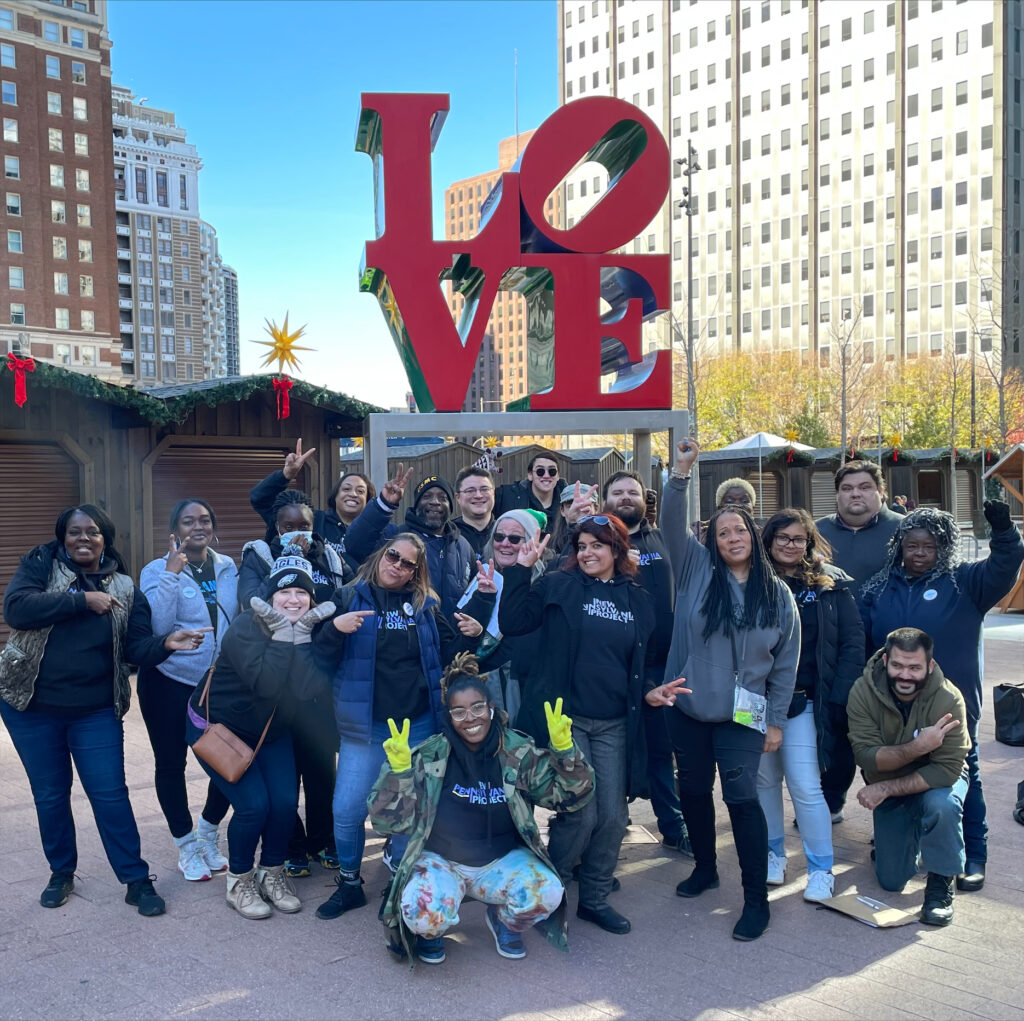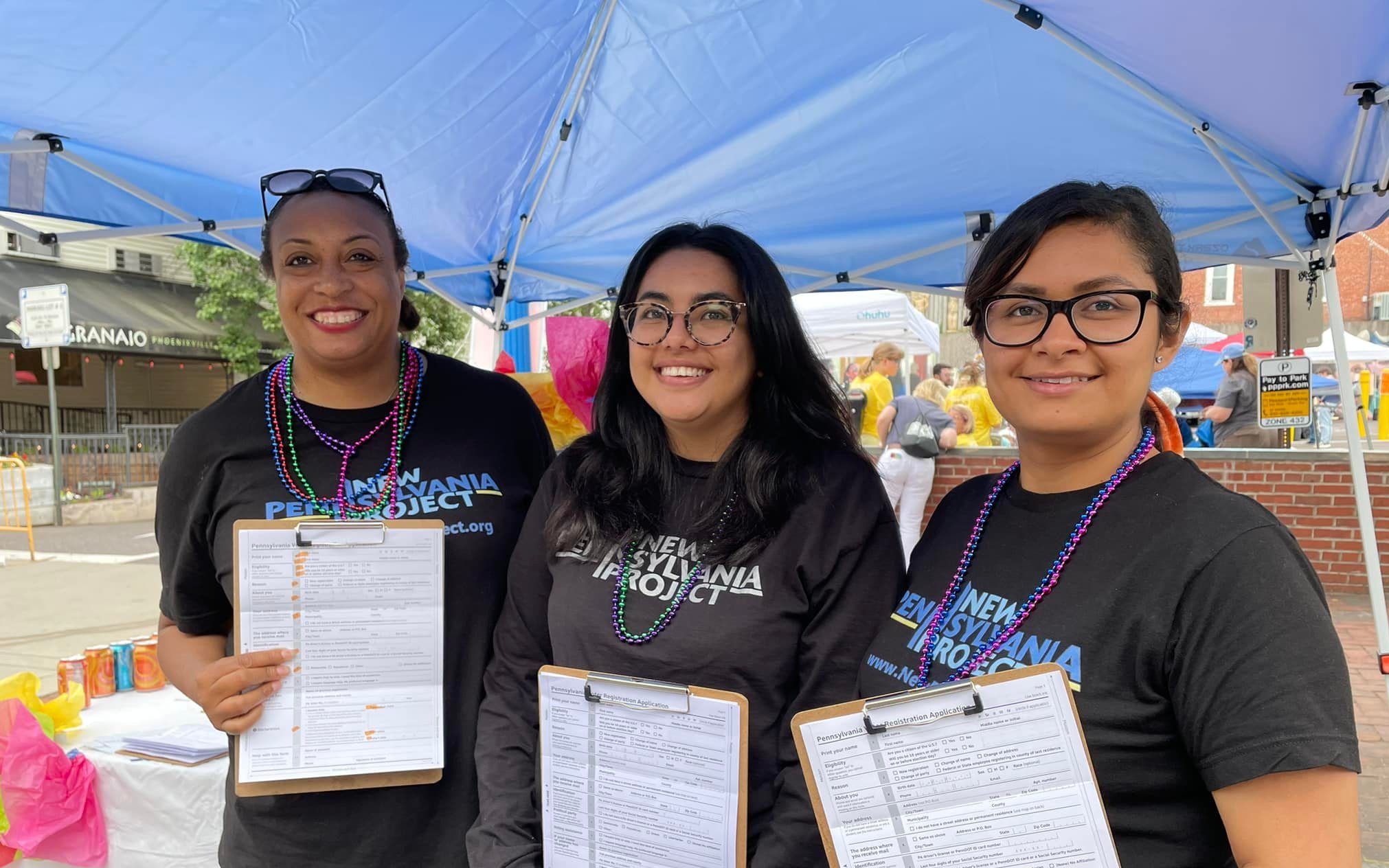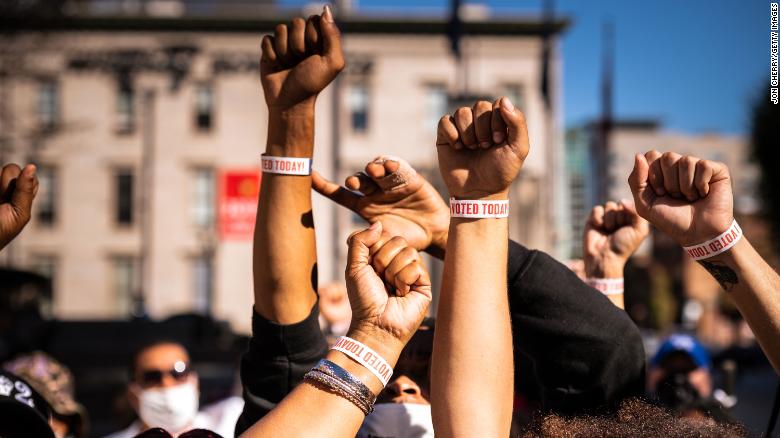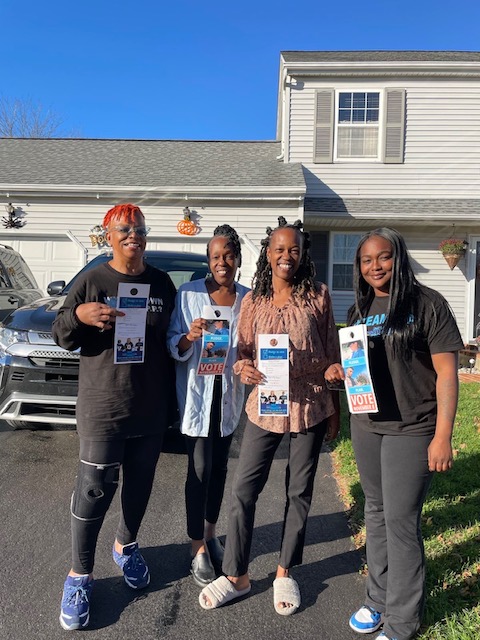Expanding democracy by transforming and expanding the electorate
The New Pennsylvania Project (NPP) was founded to expand Pennsylvania's electorate so it reflects the Commonwealth's demographically changing population. We register them to vote, provide education about the issues that matter in their neighborhoods, and mobilize people to vote in every election - twice a year.
Our vote is our power.
Every Pennsylvanian has the right to make their voice heard. Make a plan to vote, register to vote, and check your voter registration status
Take ActionGet Involved
We need you to help us expand democracy by transforming and expanding the electorate in Pennsylvania. Stay up to date with our biweekly newsletters, make a recurring donation to help sustain our work year-round, or volunteer with us - we need help from data entry to canvassing.
Get InvolvedDonate
Our voting rights are in peril. Your investment in the work can help us to engage and empower young residents, and those living in underrepresented and often neglected communities of color and immigrant communities.
DonateStay Updated & Receive Periodic Updates
Our Mission
The New Pennsylvania Project (NPP) is a voting rights organization with a year-round primary focus on voter registration, civic education and mobilization. NPP centers historically disenfranchised and often neglected Black, Indigenous and other people of color, immigrant communities and the youth in our work. Through civic engagement, we ensure all eligible voters feel compelled to exercise their freedom to vote in the Commonwealth.
NPP centers communities who live in urban, rural and suburban Pennsylvania to include: Philadelphia, Montgomery, Delaware, Chester, Bucks, Dauphin, Cumberland, Lancaster, Allegheny, Berks, Lehigh, Monroe and Northampton counties. We are consistently engaging these communities, educating neighbors, colleagues, and friends about civil rights, fair education funding, marijuana legalization, economic justice, and environmental justice and stewardship.
Latest News
When it Comes to Our Freedom to Vote, the Two Parties Are Not the Same
by Kadida Kenner | March 31, 2024 Leading an organization with a primary focus of expanding democracy by expanding the electorate – through voter registration, civic engagement, and education – we frequently …
Read MorePennsylvanians Can’t Afford To Sit Out In 2024
Millions of regular Pennsylvanians cast their ballots this year to ensure their voices and votes weren’t drowned out by the record-breaking campaign spending of billionaire donors and shadowy out-of-state groups …
Read MoreWATCH: A free panel on Pa.’s 2023 election results
Pennsylvania voters went to the polls on Nov. 7 to elect new judges to sit on multiple statewide courts. These judges will make decisions that influence major issues such as …
Read More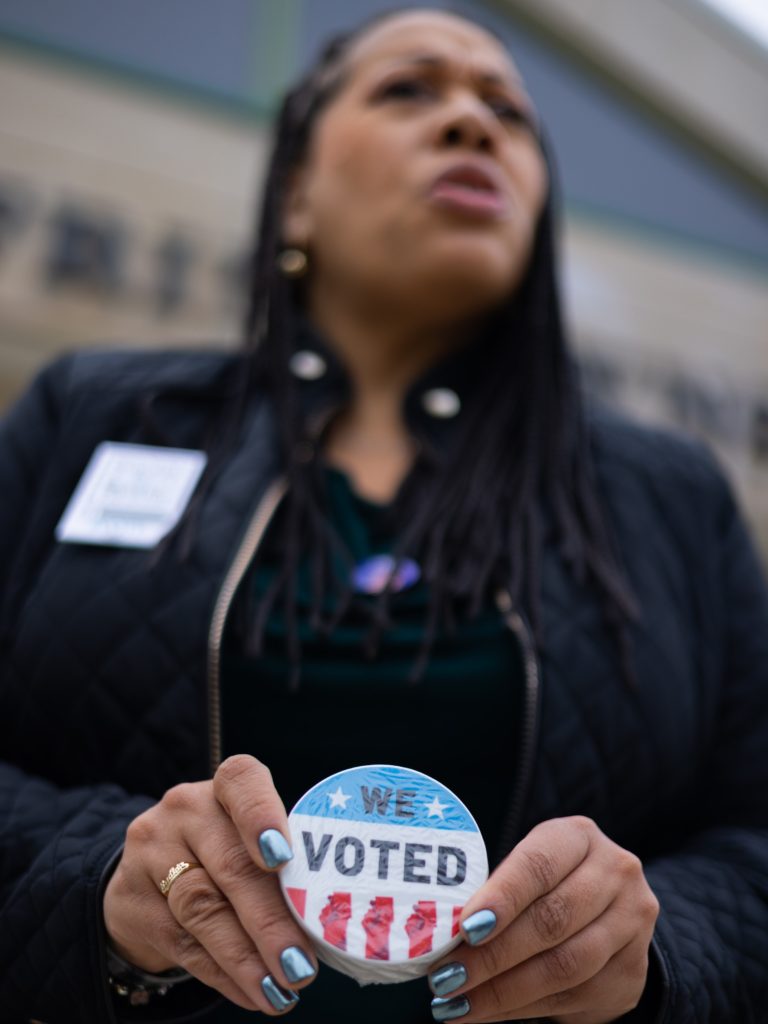
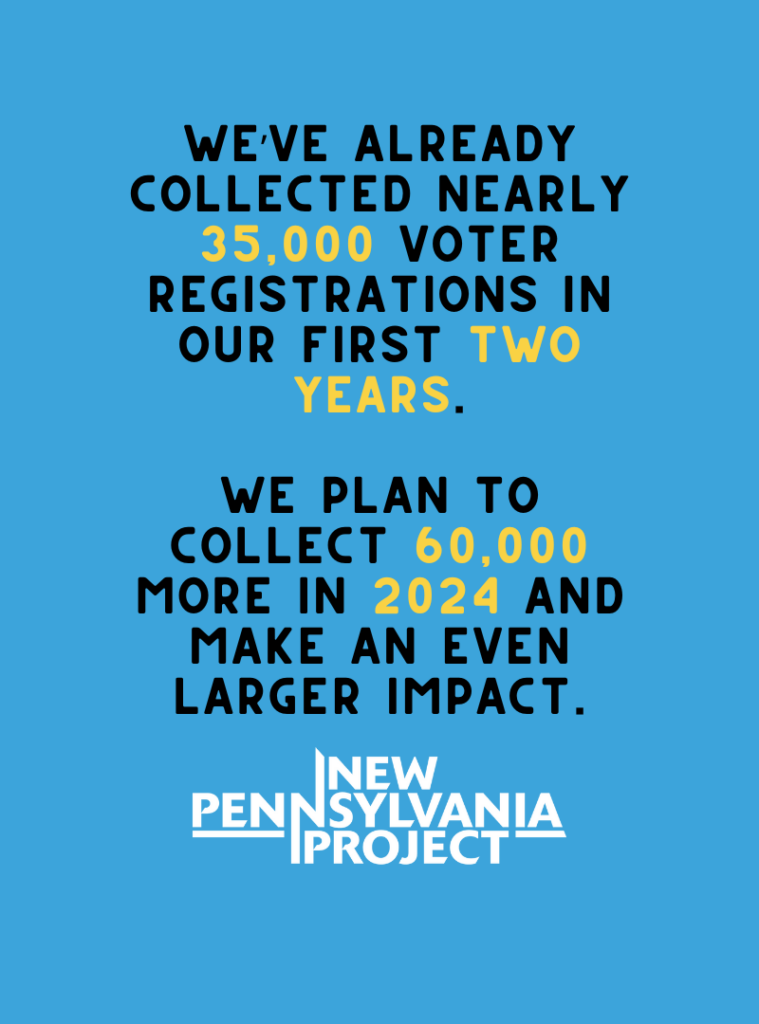
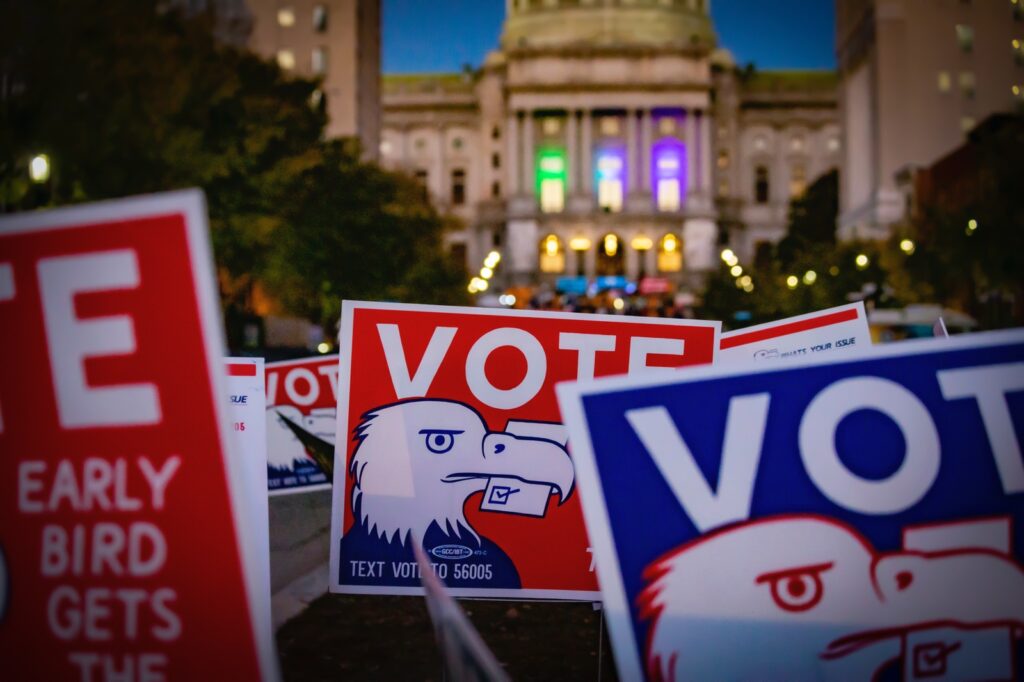
The Issues
More recently, in Pennsylvania, we have seen attacks against our democracy and our right to vote by proposed constitutional amendments and legislative bills to restrict access to the ballot and the sham election audit.
The New Pennsylvania Project believes we must defend our voting rights from those who wish to erode the public’s trust in our free and fair elections.Let’s work to not only expand the electorate but also make it easier for folks to gain access to the ballot, eliminate voter suppression, and combat election and voter disinformation.
Policing in America, at its core, is deeply rooted in structural and systemic racism. To tackle the foundation of structural racism in policing, we can start by providing better training and monitoring police forces to address the economic inequality that creates high rates of crime, especially in BIPOC communities.
Redistricting is the process of redrawing voting district lines to reflect population changes every ten years, after each U.S. census. In Pennsylvania, new lines are drawn for state legislative maps as well as U.S. Congressional districts.
Districts should ideally be redrawn in a “nonpartisan” way that don’t favor one party or another. Currently, Pennsylvania law puts state legislators in charge of redrawing Congressional maps, which can lead to blatant power grabs and conflict of interests. The result is gerrymandering: the practice of manipulating voting districts to benefit political Parties, not people. Gerrymandered districts give voters less voice and less choice, and therefore don’t see themselves represented in Harrisburg or Washington, D.C.
The COVID-19 global pandemic has made it impossible to ignore frontline essential workers in hospitals, grocery stores, gas stations, and farms (more likely to be Black, brown, or immigrants) who do not receive fair wages or the protective equipment they need to stay safe.
Currently in Pennsylvania, employers of workers who customarily receive tips, such as servers and bartenders are required to pay their tipped workers a base wage of $2.83 per hour, known as the subminimum wage. The subminimum wage is a direct legacy of slavery and we can see that the two-tiered wage system continues to be a source of economic instability and racial inequity for millions of workers, a majority of whom are women and disproportionately women of color.
Tipped workers in Pennsylvania have higher rates of poverty and rely more on social safety netsthan tipped workers in states that do not have a tipped subminimum wage. Pennsylvania’s tipped restaurant workers live in poverty at 2.4 times the rate of other workers in PA.
The first step to breaking down economic, racial, and gender barriers to opportunity and to creating an economy that works for all of us is to create great schools for everyone.
Pennsylvania ranks 47th out of 50 states for higher education spending per capita. This results in high tuition which makes college unaffordable for many working families and years of crippling debt for many students. The future of Pennsylvania’s kids and economy are threatened by cuts to funding in higher education. Pennsylvania has cut funding for higher education per student by 33.4% since 2008, the 6th greatest cut of any state in the country.
Students across the country, including Pennsylvania are living with crippling college debt that has restricted their ability to contribute to the state’s economy and has affected Black, brown and hispanic students disproportionately with some of the worst college expense burdens relative to income.
Since 2008, tuition at Pennsylvania state colleges has gone up over $2,500. College costs are 34% of the median income of all families in the state and are worse for Black students at 56% of the median income and Latinx students at 48% median income.
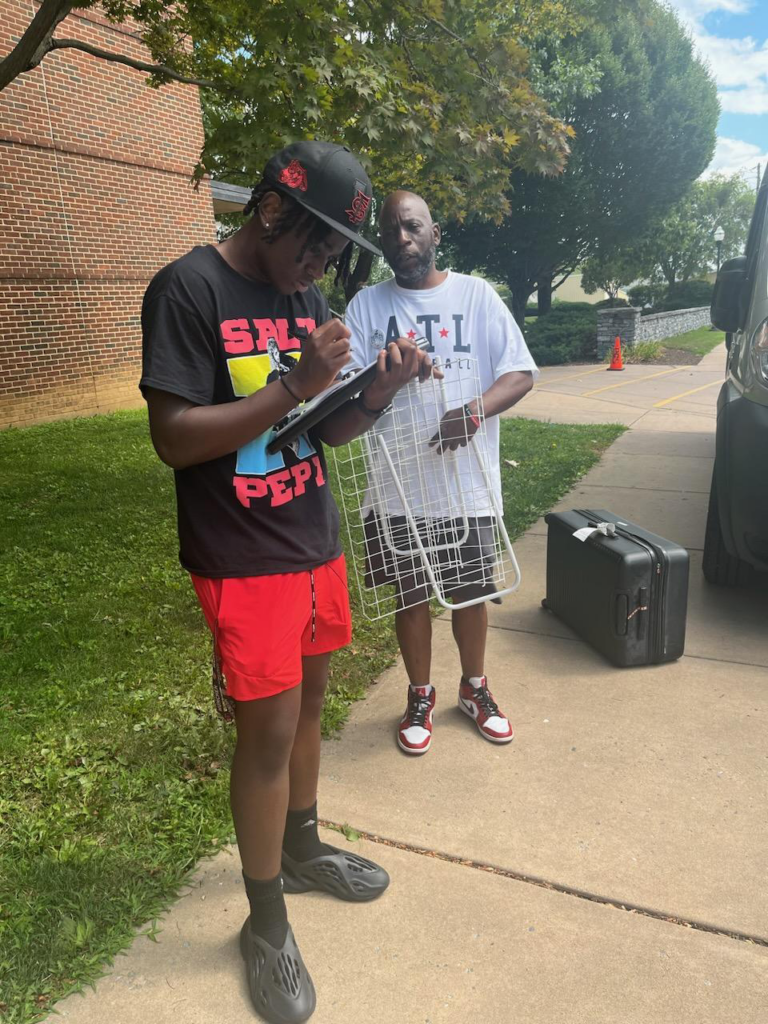
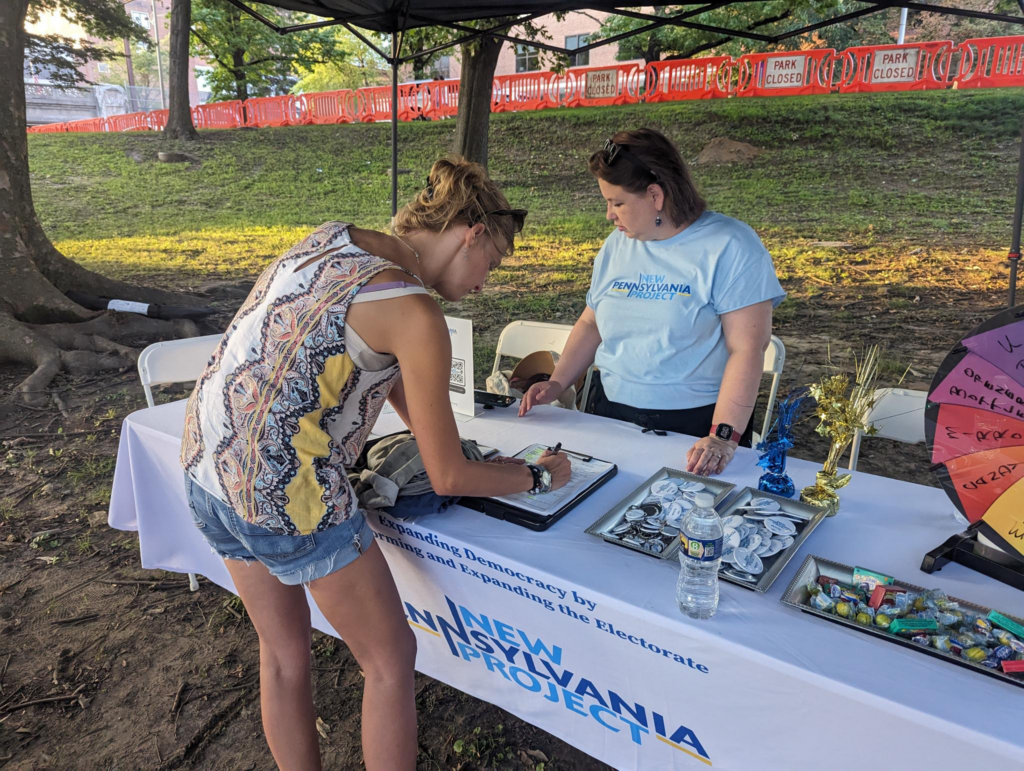
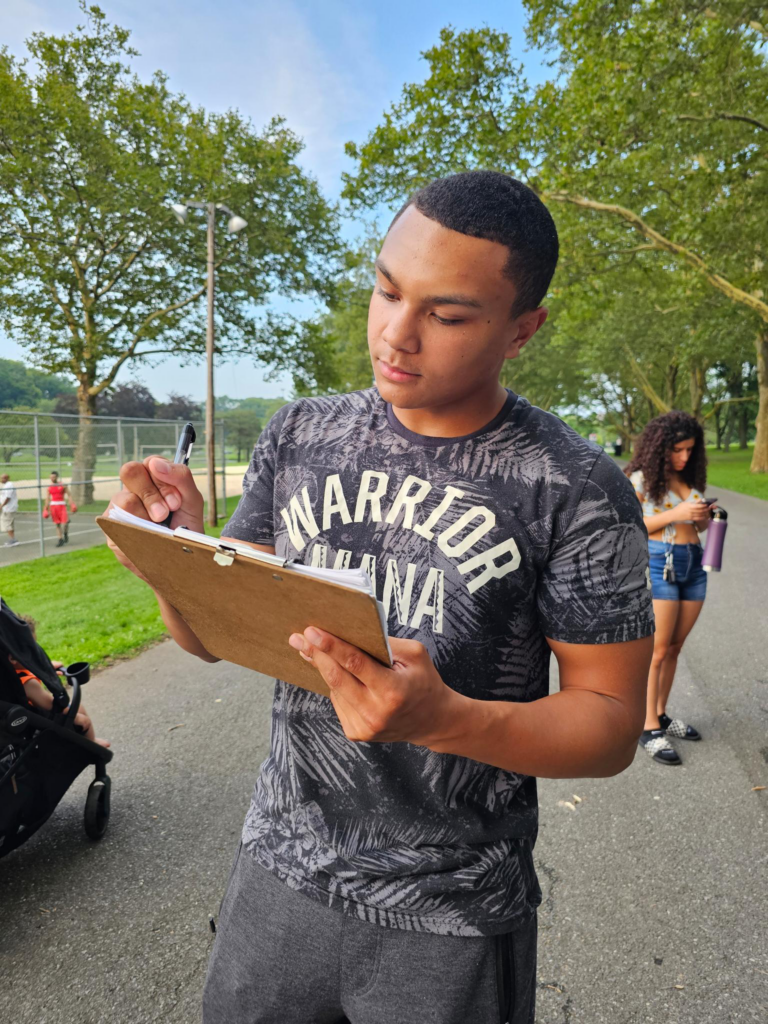
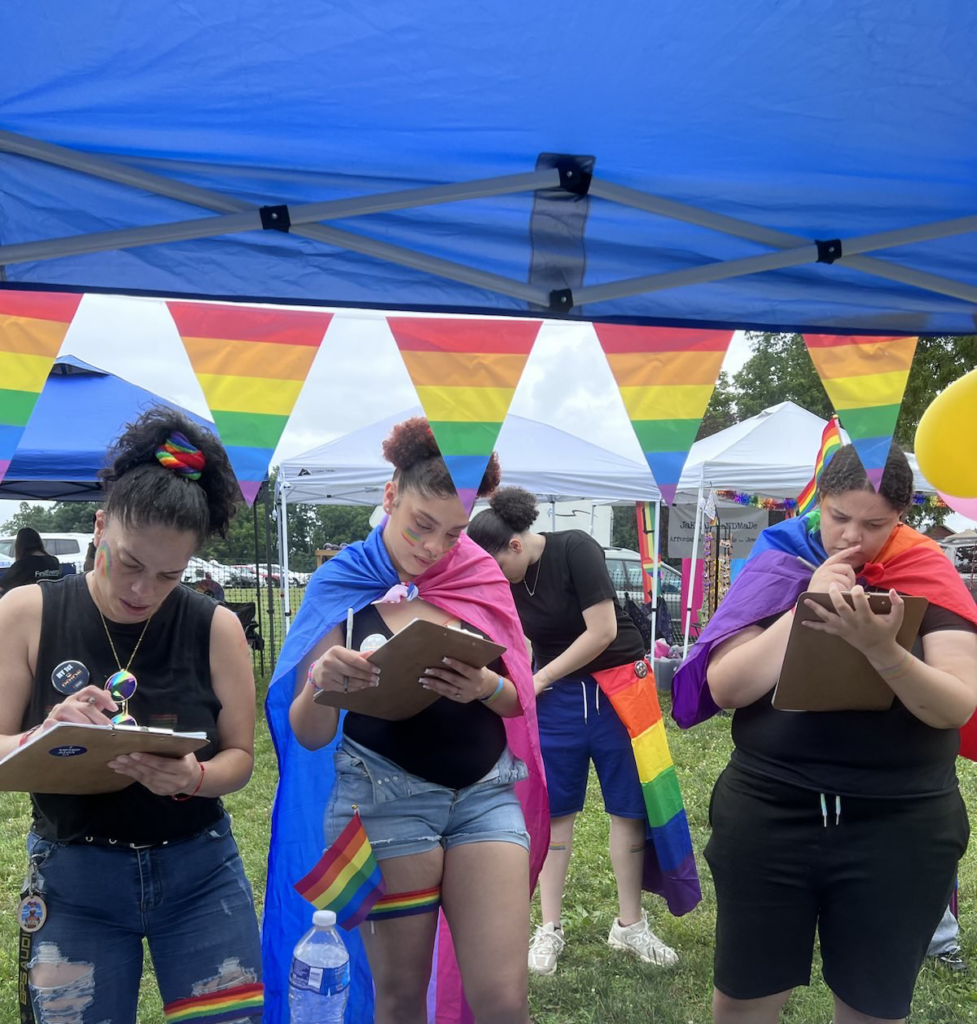

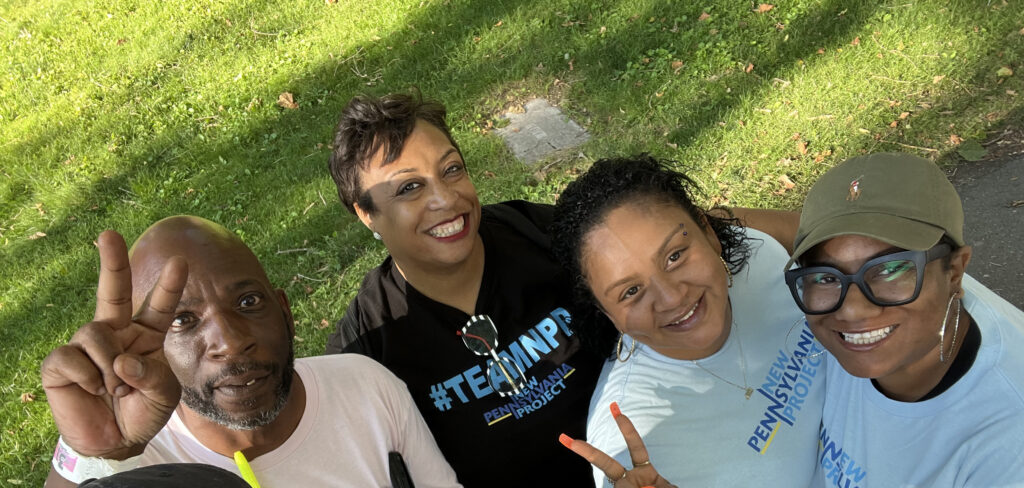
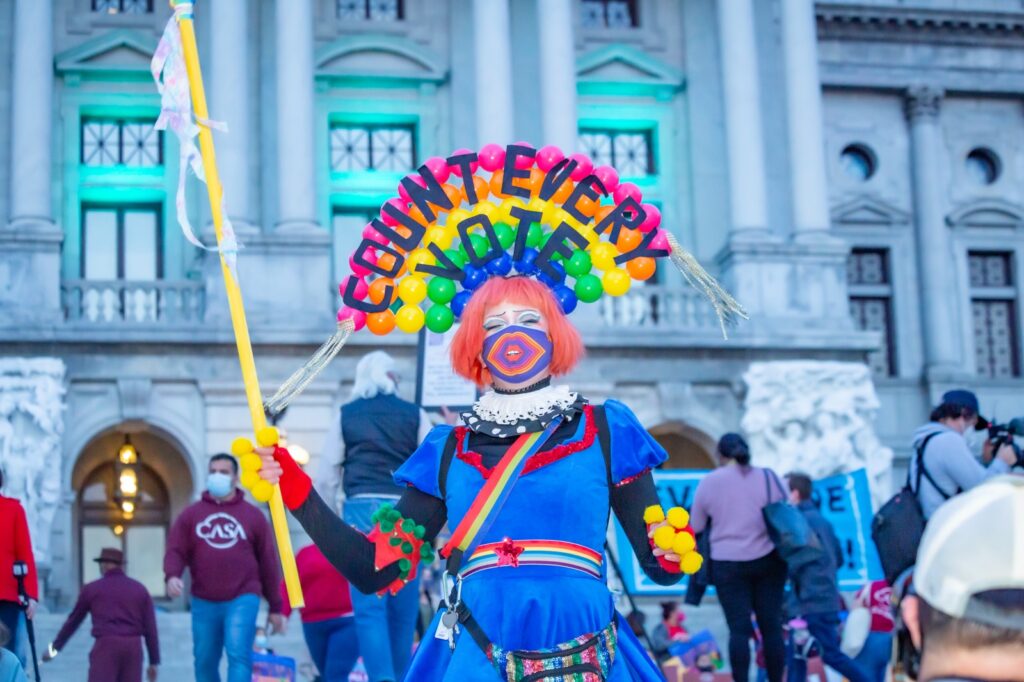
New Pennsylvania Project Team
The New Pennsylvania Project is a voting rights organization with the primary purpose of voter registration. We highlight issues that matter to you and your communities - not campaigns or political parties.Interested in making a difference in your community by joining our team? Visit https://www.newpaproject.org/careers/ or click the "We're Hiring" button at the top of the page to see all current career opportunities with the New Pennsylvania Project.
